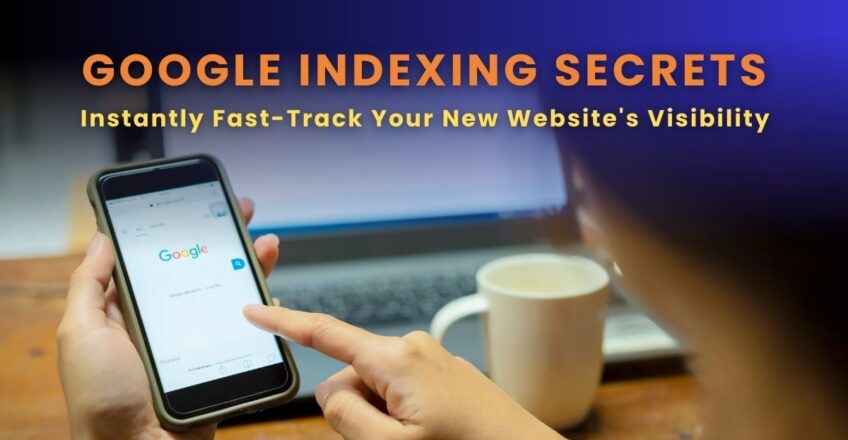
Get Your New Website Noticed: Fast Google Indexing Tips
Table of Contents
You’ve put in all the hard work: designing, developing, and finally launching your brand new website. Congratulations! It’s an exciting milestone. But now comes the next crucial step: getting found by your target audience. And for that, your website needs to be indexed by Google.
Think of Google’s index as a massive library. If your website isn’t in that library, no one can find it when they search. So, how do you make sure Google finds and shelves your digital masterpiece quickly? Let’s dive into some practical tips and tricks that will help you fast-track your website’s journey into Google’s search results.
Why is Google Indexing Important?
Before we get to the “how,” let’s quickly touch on the “why.” If your website isn’t indexed by Google, it simply won’t appear in search results. This means zero organic traffic, no matter how amazing your content or products are. Fast indexing means faster visibility, which translates to more potential customers, readers, or clients finding your site sooner.

The Essentials: Setting the Stage for Fast Google Indexing
1. Submit Your Sitemap to Google Search Console
This is arguably the most critical step. A sitemap is like a detailed map of your website, guiding Google’s crawlers to all your important pages. Submitting it directly to Google through Search Console tells Google exactly what pages you want them to know about.
How to do it:
- Sign up for Google Search Console (if you haven’t already).
- Verify your website ownership.
- Navigate to “Sitemaps” in the left-hand menu.
- Enter the URL of your sitemap (e.g.,
yourwebsite.com/sitemap.xml) and click “Submit.”
2. Request Indexing for Key Pages
While sitemaps are great for the overall site, if you have a brand new, highly important page you want indexed immediately, you can directly ask Google to crawl it.
How to do it:
- In Google Search Console, use the “URL Inspection” tool.
- Paste the URL of the specific page you want indexed.
- If it’s not indexed, click “Request Indexing.”
Beyond the Basics – Optimizing for Quicker Discovery
3. Ensure Your Website is Crawlable
Google’s “spiders” (crawlers) need to be able to access your content. Sometimes, technical issues can block them.
- Check your
robots.txtfile: This file tells crawlers what parts of your site they shouldn’t access. Make sure it’s not accidentally blocking important pages. You can usually find it atyourwebsite.com/robots.txt. - No
noindextags: Ensure individual pages don’t have ameta robotstag set tonoindex, which explicitly tells Google not to index that page. - Fix broken links: Broken internal links can prevent crawlers from discovering all your content.
4. Build Quality Internal Links
Internal linking is incredibly powerful. When you link from one page on your site to another, you’re not only helping users navigate but also guiding Google’s crawlers. Strong internal linking helps distribute “link equity” and ensures that even deeper pages are discovered.
- Tip: When you publish a new article, go back to relevant older articles and add a link to your new content.
5. Obtain Quality External Backlinks
While not strictly about fast indexing, quality backlinks from reputable external websites signal to Google that your content is valuable and trustworthy. This can indirectly encourage more frequent crawling and faster indexing.
- How to get them: Create genuinely useful, shareable content that others will naturally want to link to. Guest posting on relevant industry blogs can also be a good strategy.
6. Create High-Quality, Fresh Content Regularly
Google loves fresh, relevant content. Regularly updating your website with new blog posts, articles, or product pages gives Google a reason to revisit your site more often. The more frequently Google crawls your site, the faster new pages will be indexed.
- What is “high-quality?” It’s content that genuinely helps, informs, or entertains your audience. It’s well-researched, original, and easy to read.
7. Optimize Your Website’s Speed and Mobile-Friendliness
Google prioritizes websites that offer a good user experience. This includes sites that load quickly and are responsive on all devices (especially mobile). A slow, clunky site might discourage crawlers from spending too much “crawl budget” on your pages, potentially delaying indexing.
- Tools to check: Use Google’s PageSpeed Insights and the Mobile-Friendly Test.
More Links:
- SEO Starter Guide – Rank Your New Website Fast on Google
- URL Structure Documentation – The Ultimate Guide for SEO Success
